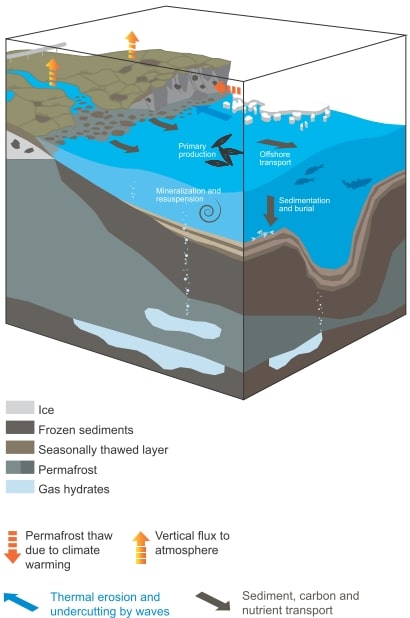PECABEAU, Beafort Sea
Permafrost Carbon on the Beaufort Shelf (PECABEAU)
Principal investigator: Jorien E. Vonk, Vrije Universiteit Amsterdam, Department of Earth Science, Faculty of Sciences, Earth and Climate Cluster, The Netherlands

Proposals Partners: Dr. Marcel Babin, Takuvik Joint International Laboratory, Canada
Dr. Lisa-Marie Bröder, Vrije Universiteit Amsterdam, Netherlands
Dr. Michael Fritz, Alfred Wegener Institute, Germany
Dr. Matt O’Regan, Stockholm University, Sweden
Dr. Paul Overduin, Alfred Wegener Institute, Germany
Research Icebreaker: CCGS Amundsen (Amundsen Science – ULaval, Canada)
Schedule: Fall 2020
Facebook or blog links: tbc
Abstract: Organic carbon is driving global climate change, which is nowhere more rapid than in the Arctic. On the Arctic Beaufort shelf, rapid changes release, transform and consume organic carbon, changing the shelf ecosystem. The PeCaBEAU project will apply state-of-the-art analytical techniques to track the movement and change of material from land to the ocean. We focus on the sediment column between subsea permafrost and the seafloor, the water column, the atmosphere and the interfaces between these three units. This proposed multi-disciplinary effort integrates previous results from the Canadian Beaufort sea into ongoing pan-Arctic studies. Results will describe the sources, quantities and the quality of organic matter in the water column and in surface sediments. This allows us to improve assessments of the Beaufort shelf as a carbon source or sink, and place these outcomes in the context of the Holocene paleoenvironment and transgressed permafrost.


